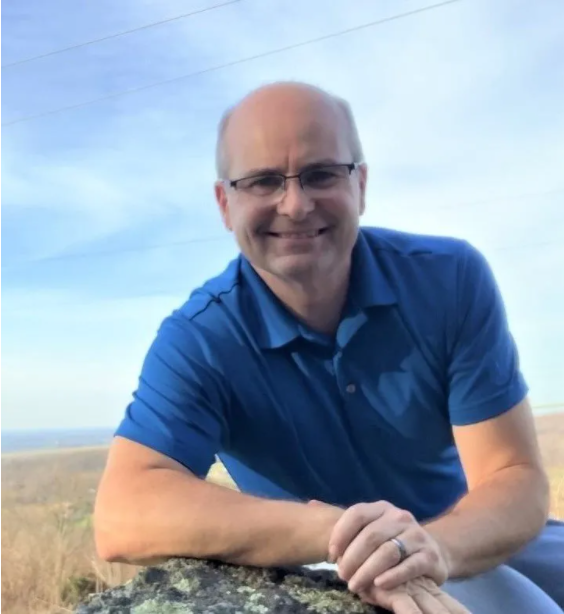Learn more about my book "The Courageous Ask"
Community, Nonprofit Leaders Are Just Like You....Or Are They?
Executives, whether they
are pastors or nonprofit executives in our context, are placed on a moral pedestal. It’s not that the typical person necessarily believes they belong there or desires to put them there, but it is simple human nature that this happens.
We may have an incredible amount of respect for our executive leaders. In fact, maybe it’s admiration because they have so inspired us. This is especially true if they are founders who have seemingly created something from nothing. It may amaze us what God has done through them, that they courageously moved forward in accomplishing what people thought was impossible. We hold them in high esteem and put them up on that pedestal.
And most times this elevation is deserved. But along with the pedestal comes something else.
The public often places
much higher expectations on leaders than they do on themselves. I talked a lot about this part of human nature in a
previous blog article.
Sometimes it is appropriate, and the leader has put themselves in that position. Christian nonprofit leaders recognize that they really do have a higher responsibility that comes right out of scripture.
But what about when we accept, and enact, those elevated expectations and forget the humanity of our leaders? Too many times a Christian community heaps on a leader the expectation that they are to perform with the perfection of Jesus and not simply be a Jesus follower and disciple just like them, but with a unique calling and heightened responsibility.
(This article is the twenty-first in a series that focuses on starting a conversation centered on preventing the fall of nonprofit leaders. I write it from a Christian perspective, but all leaders will benefit. Be sure to sign up to receive these articles via email every Tuesday at
briankreeger.com.
In addition to receiving these articles two days before they hit social media, you will receive the Contents, Introduction and the Appendix (My story) of my upcoming book,
The Courageous Ask: A Proactive Approach to Prevent the Fall of Christian Nonprofit Leaders.)
Somewhere inside us, we recognize leaders are human and are not perfect, but our focus remains on the great things they have done. We forget their humanness since they have been able to put on airs that everything is under control for the benefit of the advancement of the organization.
But maybe everything is not under control.
Many times when a leader shows human imperfection, the respect we have for them is damaged. Leaders fall under strict judgment, and we forget they are no more or less fallible than us. The imperfection they may exhibit might color any positive experience we would have had with them otherwise. While most of us acknowledge this strict, hypocritical judgment and recognize it as not being how we want to treat our leaders, it is a difficult battle to fight in our own attitudes and minds.
Allow me to put it another way: We all know our leaders are not perfect, but what happens when they prove it?
And believe me, nonprofit leaders see evidence of this in the community around them very clearly. Most leaders have the wisdom and compassion to recognize the battles people are fighting within themselves. But, they too are only human and it can bring them down. The pedestal can be hard to live up to, and it can be quite discouraging.
For those in the community around a leader, part of the proactive approach to prevent the fall of a nonprofit leader is recognizing they do not differ from us and properly applying that recognition. Nonprofit leaders need this part of the community around them, can pick them out in a minute, and are attracted to them.
So, how do we see our leaders? More importantly, is the practical way we interact with our leaders consistent with what we know to be true in our hearts? You see, I have every confidence that you know in your heart what is true, what is right, in the way Christian nonprofit leaders are treated. It’s just tough to carry it out in action, especially when something seems awry.
Many leaders can handle being under the microscope. Many leaders can handle being the embodiment of the common phrase “No good deed goes unpunished.”
But some cannot. Some nonprofit leaders succumb to the pressure to be the “ideal” and adapt who they truly are in order to meet inhuman expectations.
The inability of a Christian nonprofit leader to be themselves, and to live with the fear of transparency with their accountability structures or those they come in contact with can be the source of a fall. This fear can definitely usher in the loneliness and isolation that can lead to a fall.
And what are they afraid of? They can be afraid that if they show their true fallible self, it may be to the detriment of them and the organization. The image people have of them and the organization could weaken, resulting in any number of damaging results affecting the mission.
No leader wants that. Yes, the community has a role in preventing the fall of Christian nonprofit leaders.
Nonprofit executives, including pastors, are on the public dole. Primarily, the support that sustains the mission they are so passionate about, and their paycheck, comes from the public in one way or another.
That support ultimately comes from individuals, foundations, and publicly supported government agencies among other sources. There are many self-sustaining, fee-for-service nonprofits out there, but by and large, nonprofits rely on the public.
Because of this, there is a propensity for Christian nonprofit executives to be taken for granted, even taken advantage of. I heard this loud and clear during many interviews. Mostly, this frustration seemed to come from leaders who struggled to draw boundaries because of their big hearts and their innate, self-imposed responsibility to those who support them.
Christian leaders many times feel disrespected. Those inside the accountability structures can help with this, but people outside those structures can especially help with this, as they are sensitive to the limitations of their leader.
Pastors described to me the many ways a congregation expects that all the pastor’s time is actually their time, and tend to treat it as such.
“People will do to their ministers what they wouldn’t do to their doctors,” one pastor told me. “People stop into the office and say, ‘Hey, pastor, you busy?’ What am I going to say, even though I have a pen in my hand and papers all over my desk? Even my dog needs an appointment at the veterinarian.”
Now, this particular pastor was sure to acknowledge the pastoral duty inherent in their vocation and was gracious in their descriptions, but I could also sense their frustration.
“We want to be a certain person, but in reality, when we don’t feel respected, or we feel taken for granted, that humanness comes in and frustrates us,” the pastor added.
What about meetings?
Many times the community expects a nonprofit executive to be in every meeting imaginable.
As a Christian free clinic CEO, people expected me to be on every committee related to healthcare and every committee related to Christian causes in the community. Put those things together and my life became meetings. As I was working to build the clinic, I faced internal pressure and external expectations—it visibly disappointed people when I didn’t take part in their causes. That is hard to navigate for the nonprofit executive.
One study I read on Pastoralcareinc.com revealed that 75 percent of pastors report spending four to five hours per week in needless meetings. The same report said that 72 percent of pastors report working between 55 and 75 hours per week.1
Nonprofit consultant and writer Joan Gerry wrote in Harvard Business Review, “Your jaw would drop if you knew how many executive directors work 65 hours a week and are paid for 20.”2
Those four to five hours in needless meetings could have been spent with family or doing something else to keep them sane.
The expectations of the community
around nonprofit executives need to change. It won’t be easy. As a community, we need to find strategies to ease their legitimate frustrations and burdens. The community also needs to understand that it is difficult for a nonprofit executive to set boundaries and needs to be accepting when they do.
We need to consider Christian nonprofit leaders as professionals, making appointments even though they say it’s okay not to. We need to ease the expectation that they are to be at the nonprofit every time the doors are open. We need to take leadership in our committees to ease the pressure on our leaders.
Yes, the community plays a big role in preventing the fall of Christian nonprofit leaders.
Now, it’s time to talk about it among the community.
Be sure to sign up to receive these articles via email every Tuesday at
briankreeger.com. In addition to receiving these articles two days before they hit social media, you will receive the Contents, Introduction and the Appendix (My Story) to my upcoming book, The Courageous Ask: A Proactive Approach to Prevent the Fall of Christian Nonprofit Leaders.
Brian@briankreeger.com
1“Statistics for Pastors,” Pastoral Care Inc., 2020, https://www.pastoralcareinc.com/statistics/.
2 Joan Garry, “How Nonprofit Leaders Can Keep Their Organizations Afloat,” Harvard Business Review, April 21, 2020, https://hbr.org/2020/04/how-nonprofit-leaders-can-keep-their-organizations-afloat.
#Leadership Fall #Leadership Survival #Nonprofit Relationships #Proactive Approach #Leadership Struggles #Leadership Battles #Christian Executive Leader #Christian Leader #Courageous Ask #Expectations #Leadership Expectations






